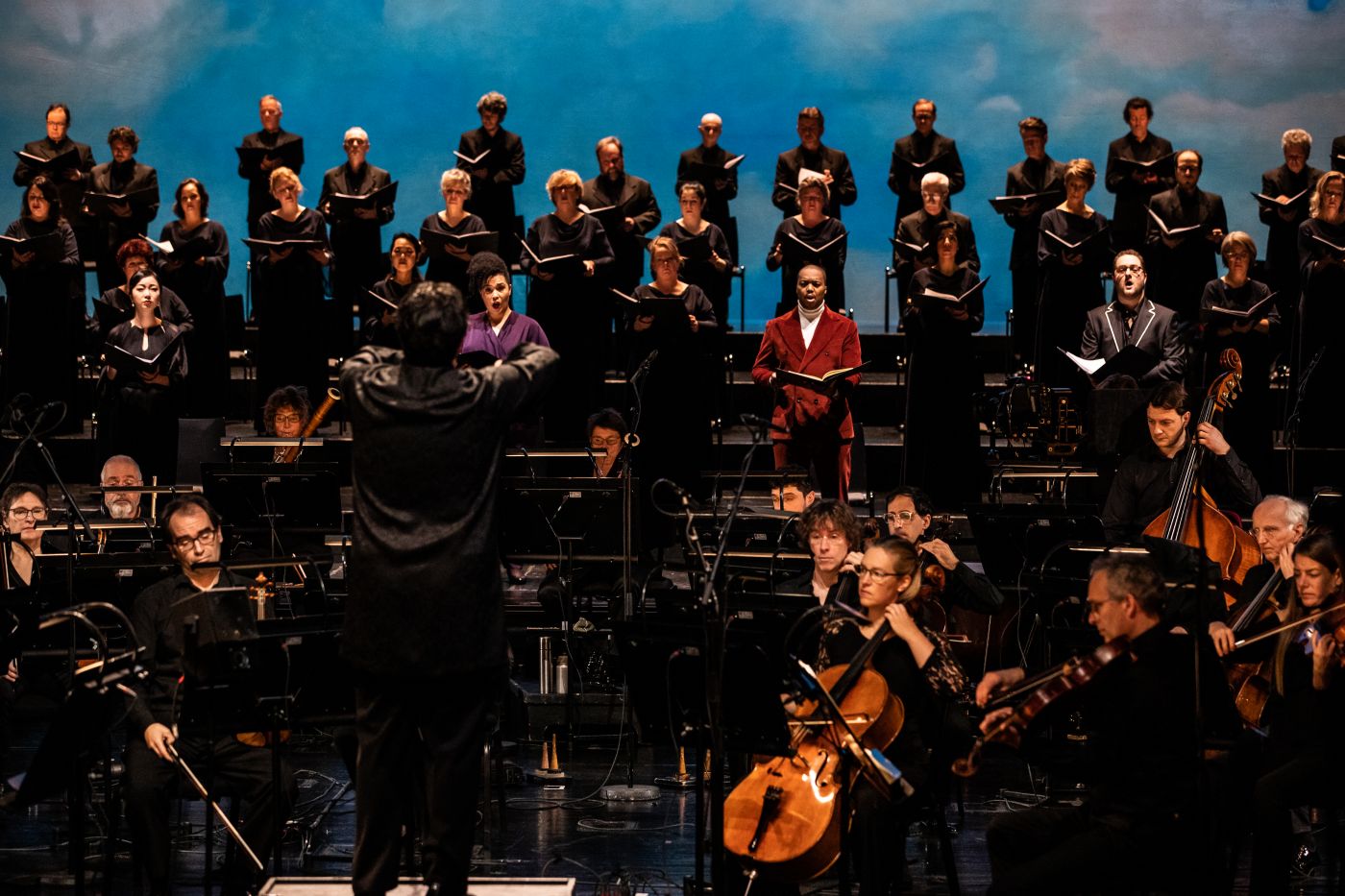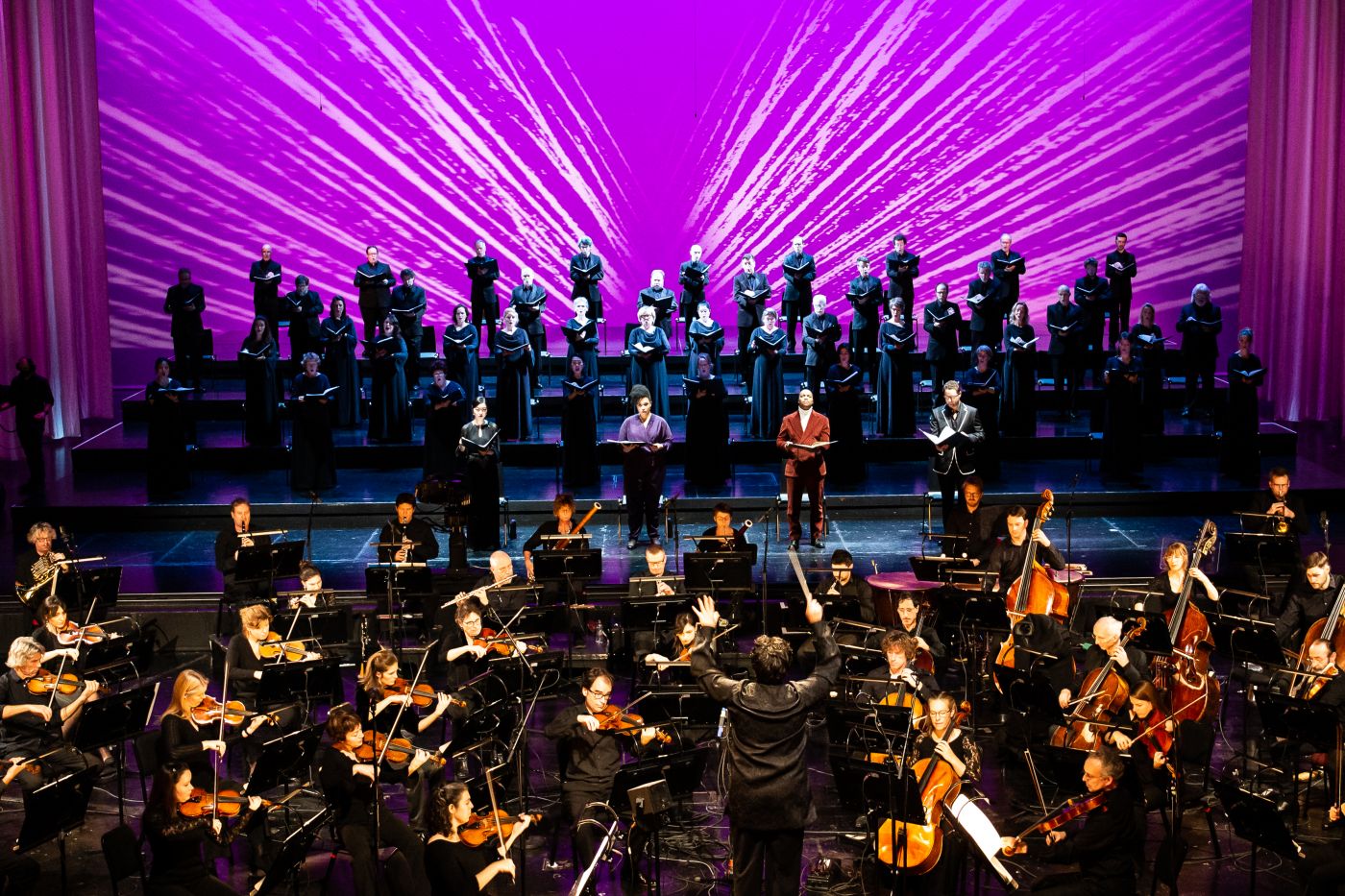
Rossini-Tenor Levy Sekgapane: ''The opera found me''
Text: Jasmijn van Wijnen
As a young boy he had never expected to become an opera singer. He dreamt of becoming a professional soccer player, when suddenly music crossed his path. In a way, opera found him. An interview with young South-African tenor Levy Sekgapane.
“I always tell people opera found me. When I started singing, I actually was more of a sportsman. Soccer was my first love, my passion. I dreamt of becoming a great star, of coming to Europe and playing in the all the big leagues. But because of multiple injuries, I started to doubt that soccer career. I was already singing in the choirs of our school and church. I greatly enjoyed choral music, but I didn’t take singing very seriously.
I grew up in a music-filled home. We sang together for Christmas and other holidays. One of my older brothers became a conductor and conducted choirs at home, in Kroonstad. I was about nine years old when he started teaching young singers at our home. I thought it was interesting to see, and slowly I started learning the music they sang. When my brother came home one day and heard me sing an aria from Don Giovanni – ‘Il mio tesoro’ – he was astonished, I could sing the entire aria without sheet music.”
Levy quit soccer at sixteen and started to sing in bigger choirs. Through a scholarship, he was able to study music in Kaapstad. “I was a member of the great South African Youth Choir. This choir, traveling through the entire country to find young talented voices, is very important in my country.”
FROM PIANO TO OPERA
Initially, Levy found opera somewhat intimidating: “Just thinking about it made me nervous. Singing in an unknown language for a large group of people, all the while acting, moving and singing – it seemed impossible to me.” Even though piano initially was his main instrument –he wanted to become a conductor – , the director of the opera school saw potential in his singing voice. “So I joined the opera school, became part of the choir and sang small roles.”
His performance of Count Almaviva in Il barbiere di Siviglia in the final year of his studies was a particular highlight. “It was a very scary moment. I really wasn’t that familiar with Rossini’s music.” The recordings of Juan Diego Florés were a source of inspiration. “At the time he was a new star, with the Rossini repertoire as his calling card. Soon he became my idol, and through his singing I realized how cool Rossini actually is. When my count Almaviva turned out successful, even though I was only 23, I realized that I had a place in the world of opera. In a way, Rossini convinced me.”

ROSSINI’S ‘SMALL’ MASS
Levy Sekgapane now makes his Dutch National Opera Debut with a non-operatic work by Rossini: Petite messe solennelle. “The piece was originally meant to be done with two pianos, a harmonium, a small choir, and soloists. Realizing that some lesser composer might try to orchestrate the mass after his death, Rossini decided to do so himself. This orchestral version is the one we will perform, and it’s huge, all but petite! All arias are grand, emotional and powerful. Suddenly there is opera in the game.”
“The tenor part is written in a strange way, because it has a very central placing. It’s not very high, it’s written for more of a lyrical tenor I would say. That makes it a difficult for me, a lot of strength of my voice is expected. My aria, ‘Domine Deus’, is a march accompanied by full orchestral forces. I have to give it my all the entire time.”
ROSSINI-TENOR
Petite messe solennelle may not be written specifically for a ‘Rossini tenor’, but the term best describes Levy Sekgapane’s voice. “A Rossini tenor is something you are, not something you can become. Rossini’s music was written for specific voices. The voices he had in mind, had to be able to sing coloraturas, high notes and long lines. A controllable, flexible voice with a focus that can cut right through the orchestra.”
Levy knew early on that his voice was quite high. “When I sang in choirs, I usually sang the tenors parts. But I could sing along with the altos as well – and sometimes, I would.” For a long time, Levy wasn’t sure about the type of tenor voice he had. “The only tenors I knew were Pavarotti, Carreras and Domingo, and they were lyrical tenors. At school I dreamt to be like them, so I sang what they sang. Soon, I noticed it ruined my voice.” This was pointed out by a new teacher of Levy’s. She redirected his efforts towards Bach, Händel and Mozart, three composers who would become the base of his singing technique. “Slowly, my voice became lighter and clearer. After studying this music for a year, my teacher told me: ‘This is your voice, the beauty of your voice has returned’.”

COMING FULL CIRCLE
Being part of Rossini’s Petite messe solennelle in Amsterdam means a lot to him: “Amsterdam is a place that is very dear to me. The first singing competition I took part in was the Belvedere singing competition.” In 2015 – the year Levy competed – the competition was hosted in Amsterdam, with the finals taking place on the stage of Dutch National Opera & Ballet. And he won. Even better: he won singing an aria from L’italiana in Algeri by Rossini.
“This city was the first step toward my career in opera. I have always wished to return and now I’m here – I was kind of emotional when I arrived. Five years ago, this is where I won with Rossini, and now I’m back with Rossini in Amsterdam.” He has come full circle, but he is far from finished.”
THE FUTURE OF OPERA
Levy has a clear opinion on the future of the artform: “We live in different times for opera. During the heyday of the artform, it was part of the mainstream. Opera stars such as Maria Callas, Plácido Domingo and Luciano Pavarotti were lucky in that regard. Opera was seen by the larger public. And not just in western society, but all over the world.”
“Today it isn’t like that, and I think I know why. Before the advent of the internet and social media, you only had television, newspaper and magazines. And opera was very present in those media. The opening of the World Championship soccer in Los Angeles in 1994 was shown on television worldwide, and featured performances by Pavarotti, Domingo and Carreras. For me, this was the first time I ever saw an opera concert.”
“Now, opera is barely ever shown on television, and it saddens me. I think we should bring opera back to the people. If you show them what kind of experience awaits them in the theatre, they are more likely to come. The world needs classical music, and children need to be introduced to it as well. I would love to see my concerts live on television. Especially in my own country. In South Africa everyone watches television. I think the ideal future for opera lies in its past; prominent presence in media. If I had a say in it, there would be daily opera broadcasts.”



